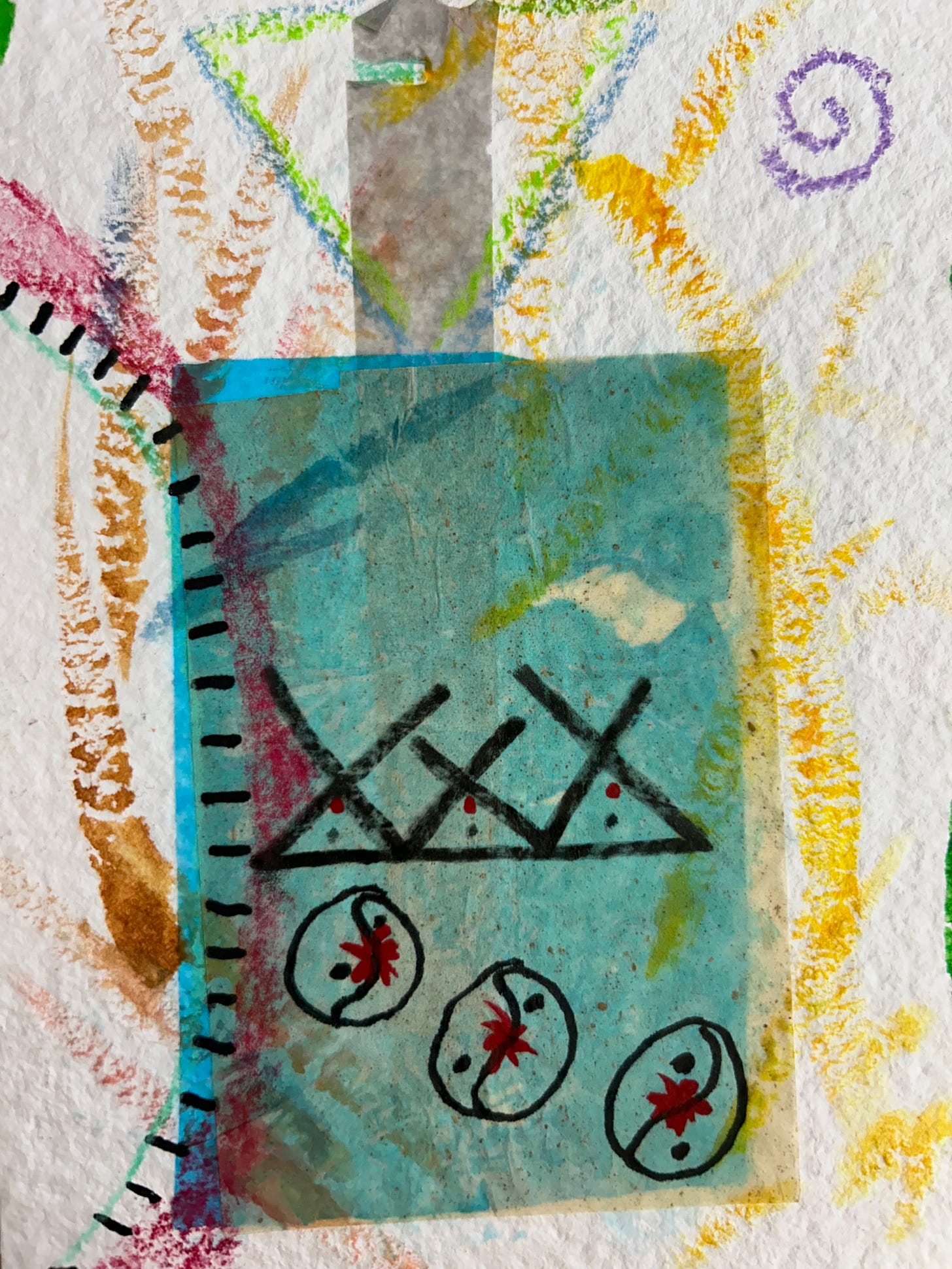We were excited to open the current issue of Oregon Humanities magazine to find a piece by founding PonyXpress editor and a current Oregon Humanities Community Storytelling Fellow, Enrique Bautista. Writing on the Wall expresses autobiography through mark making. As a former gang member and former prisoner, Enrique announced himself in the tags he left in the world, and the story etched into his skin. Enrique’s insight provides us with a road map to understand the tags we see on street signs and walls, and he shares how the art on his body declares his place in the world.
My tattooed face makes it easy for others to guess or assume things about me, although I admit that some of their assumptions are probably right. It isn’t until they get to know my story and how I got here that the tattoos become almost invisible and irrelevant.
If we think of the tagging history as Enrique’s past life, and his tattooed story as present, we can now read his vision for the future in the pages he will write and publish. We appreciate how Oregon Humanities champions stories by all Oregonians, you can read the work they publish online or subscribe to the quarterly magazine. Read Enrique’s piece Pickled from last summer.
This week we have three pieces from Coffee Creek that explore friendship, and as Hannah Brophy says with her sardonic gleam, “Prison changes everything.” Her pencil is sharpened in Friendships as she brings the unvarnished truth to the page: “…even the relationships that don’t forsake you are shaky in ways they never were previously. No longer is it an association of equals.” These aren’t relationships that end because of a move across town or a change of school — the no-one’s-at-fault split. Prison forces friendship divorces, a complex layered ending with one person sitting in a jail even more frightened and alone. The friend on the outside struggles with the “what do I say/do/how to help/who is this person/are they guilty?” carousel of questions and conflicted emotions.
Shaylyn Troxel writes, “Superficial friendships come and go/they teach us things that we don’t know.” There are the people who figure out how to support a loved one in prison. These are the people who know how to bridge a gap — one man received a letter from his high school friend once a week for twenty-six years. Melissa Black’s Friendship alludes to the “strong as steel” bond formed inside prison. As mentors, we come in for a few hours and witness the care and respect that our Coffee Creek group show one another, these relationships live with boundaries drawn in heavy black lines and yet, they support one another, and as Melissa says:
We watch each other to grow complete
Metamorphosis and we gladly use our wings.
Philip Luna IV brings us The Kickball Kids, a poem that sketches those important years when friendships are forged on the playground. Children practice the skills needed to be a friend from communication and sharing to even the painful lessons, like the feeling of being left out. For those of you who hated dodge ball, you came to realized that PE period eventually comes to an end. And for those who loved dodgeball, when you experienced the awesome power of the red cherry ball in your palm, perhaps you exercised compassion for the kids who were truly frightened. From all these interactions we learn how we want to be in the world and the mark we wish to make. | TDS


